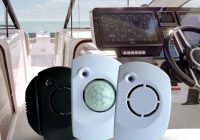
Have you considered what you would do if your electronics or engine failed while offshore? Three boating safety experts share some key safety advice to help you prepare for these potentially serious emergency situations.
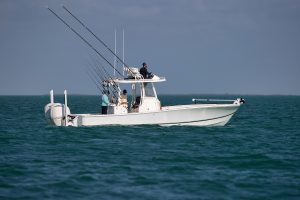
Adam Smith, President of the Boating Industry Association and Owner of Australian Boating College Sydney.
Be proactive with your maintenance and service routine. Repair and replace parts before they fail and leave you stranded. Make sure your batteries are tested at every service and replaced if you’re not sure. If your boat has a multiple-battery system, it’s always best to make sure that one battery is charged and isolated as a backup to start the engine or generator. Don’t be tempted to leave all batteries switched on all the time. Although this will charge them all while the engine/s is/are running, the risk is that you forget to isolate the start battery and run them all down together once you stop. There are simple systems available that will intelligently charge all batteries while underway, even if you only have one or some switched on. Having a handheld marine radio on board is always a good idea as a backup. Even if your boat batteries are flat, you can still get help. Navigation electronics are great nowadays. They are affordable, simple to use, very accurate, and reliable. That is, of course, assuming that you have battery power to run them and that the satellite network they rely on is working and accessible. As a backup, it’s always a good idea to have paper charts with you and plot your position regularly, just in case. If you’re in sight of the coast, you can use landmarks on the chart to determine your position. Coastal navigation basics are easy to learn, and there are plenty of good online courses available such as those offered by Above and Beyond Boating. A handheld, battery-powered GPS device is also a smart option to carry onboard as a backup.Visit abcboating.net.au and bia.org.au
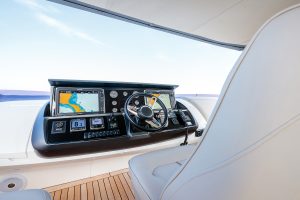
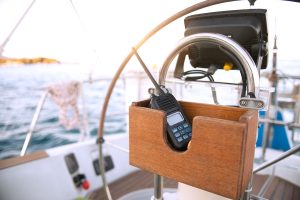
Paul Field, Marine Loss Adjustor and Coastguard New Zealand Senior Master.
Sometimes vessel components will simply fail of their own volition. This can be from no fault of the owner and can sometimes be unavoidable, even if regular scheduled maintenance has been undertaken on your craft. Failure could be due to anything from a spring failing deep within the interior of an engine causing internal damage, to something as simple as a solenoid burning out in an electrical system on board rendering a component inoperable. When electrical or mechanical issues suddenly occur, your stress levels will become immediately elevated. However, first and foremost, don’t panic in the event of an electrical or mechanical issue. This can lead to poor decisions and make matters worse. Equally if the master or skipper of the vessel is not calm and collected, this will radiate throughout the rest of those on board.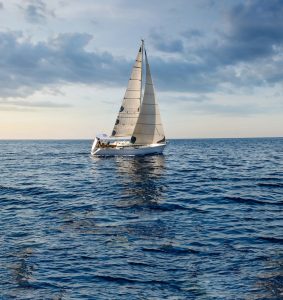
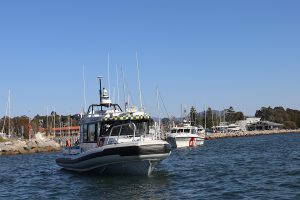
Glenn Sullivan, Monaro Region Zone Duty Operations Manager with Marine Rescue NSW.
Electronic failure can range from a simple flat battery to an electrical fire on board. In most cases, boaters that I have encountered experience flat batteries which only require a jump start. For this, carrying a small jumper starter pack as part of your safety equipment is an excellent idea. If you don’t carry a jump starter park, call your local volunteer marine rescue (VMR) to request a jump start, or if unsuccessful, a tow back to safe harbour. Most VMR vessels are able to provide a jump start and it usually is safer and more cost efficient than providing a tow, but depending on the condition of your battery, this may not be possible. When this does occur, providing a geographic position and a LAT and LONG is important. It is important to read your vessel position and not the cursor position on your GPS as in many cases, the boater has provided the cursor position and then sent the rescue asset to the wrong location. By providing the geographic location, it enables the VMR operator to confirm and verify the two points of reference. Your mobile phone, if GPS enabled, can provide a LAT and LONG, but please inform the type of GPS being used as this can be possibly converted and plotted into Maritime LAT/LONGs. Other electronic failures of engines can occur, and usually require a marine mechanic with computer diagnostics, so do not hesitate to contact your local VMR for a tow back to safe harbour. A fire at sea is a serious event, which can lead to vessel abandonment and people in the water. If an electrical fire has escalated, shut down all electrical sources and fight the fire with a dry powder extinguisher (type ABE). Call your local VMR if possible, Triple Zero (000) for assistance and consider activating your EPIRB, especially if the first two options are not successful.Visit marinerescuensw.com.au
The August-September issue of Nautilus Marine Magazine is out now.
About Nautilus Marine Magazine
Nautilus Marine Magazine offers readers 100 pages of content to support their on-water lifestyle. Published every two months across Australia and New Zealand for an audience of Nautilus Marine Insurance customers, members of the marine industry and boating enthusiasts, our magazine features expert features, boat profiles, interviews with boating and sailing identities, fishing adventures, travel destinations, boating lifestyle content and dining. No matter what side of the boating spectrum you sit on, power or sail, Nautilus Marine Magazine is a must read.
About Nautilus Marine Insurance
Nautilus Marine Insurance is a leading provider of insurance solutions for recreational vessels and marine business assets across Australia and New Zealand, protecting over 45,000 vessel owners and marine industry members. For over 19 years, Nautilus Marine Insurance has been a specialist supplier of insurance for pleasure craft and marine business assets and liability insurance. Nautilus Marine Insurance provide coverage for pleasure craft of all sizes, ranging from sailing dinghies and personal watercraft (PWCs) through to yachts, runabouts, and luxury motor yachts as well as commercially operated boats and marine businesses. Through its Industry Lines division, Nautilus Marine Insurance also specialises in providing tailored business insurance for clients servicing the recreational boating market including marina operators and owners, yacht clubs and boat clubs, boat dealerships and most marine trades including boat repairers and boat service providers. Thousands of professional insurance advisers and brokers choose to work with Nautilus Marine Insurance. These insurance experts trust the breadth of Nautilus Marine’s products and claims support to recommend our products and services to their clients. Nautilus Marine Insurance has a passionate team of over 90 staff and offices across Australia and New Zealand. Nautilus Marine Insurance is a business name of NM Insurance Pty Ltd, ABN 34 100 633 038, AFSL 227186. It has binding authority from Zurich Australian Insurance Limited (ZAIL) which allows it to enter into and arrange policies of insurance and handle and settle claims made under them. Visit nautilusinsurance.com.au to find out more.






